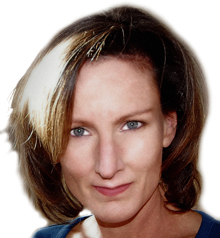Full Disclosure

I am an idealist. I believe inexorably that free speech is imperative to democracy, and I believe free television to be one of the major tenets of free speech.
I am not a starry-eyed idealist. I am familiar with the dreck that frequently populates the airwaves. I am familiar with it because I occasionally watch it, like I occasionally have popcorn and red wine for dinner. As a citizen of the United States, I retain the divine right to engage in frivolity, especially if it’s not good for me.
It can be argued that television in any form is not good for me or anyone else. Staring at a constantly shifting light source cannot be all together good for the human eye, and there seems to be some evidence that it has an undesirable effect on the human behind. But television is our great equalizer. It is the one medium through which everyone in this country can simultaneously receive the same information. That’s not to say free broadcast radio isn’t just as ubiquitous, but when the first commercial airliner slammed into the side of the World Trade Centers on Sept. 11, 2001, people turned on the TV. The sight gripped a public long considered inured to images of destruction.
SUBTLE FORCES
Television still brings people together in less overt ways as well. It’s true that we’re not all sitting around at the same time waiting for the same episode of I Love Lucy to start. But let me just say, “Ohio State-Michigan.” Or “Super Bowl.” Or... ahem... “American Idol.” Millions of people who might not otherwise share a single characteristic in common come together to be entertained, or possibly distracted from the basic difficulties of life. Does this contribute to the foundation of democracy? History does indeed demonstrate that relatively content populations don’t tend toward rebellion.
However, typical of positions of fervent support, mine regarding free over-the-air television is strictly personal.
I grew up on a small farm in the Sand Hills of Central Nebraska where the rest of the planet could not have seemed farther away. We lived in a house built by my great-grandparents for my grandparents when the youngsters got married. In 1910.
We had a non-working crank phone, propane heat and a 30- foot Yagi antenna on the top of our house. That antenna is how we knew when tornadoes were forming in the clouds on the horizon. It’s how we found out John F. Kennedy, and then his brother Bobby, were brought down by assassins’ bullets. It’s how we found out every night how many American GIs died in Vietnam that day.
Our way of life wasn’t particularly romantic. Anyone who’s ever lived in the heart of the Great Plains knows it can test anyone’s tolerance for sheer, inescapable boredom. Summer is fine, but it lasts about long enough to thaw the ice on the livestock tank. The rest of the time, you’re in the house without enough library books.
Because of television, I knew that people in the world lived differently than I did. Women went to college; they owned their own cars and lived in houses with heat in every room.
For better or worse, I aspired to a life I could not have imagined merely from taking in my own surroundings. I wasn’t that creative.
I would become the first female in my family to graduate from college. I went on to work in the heart of New York City, where I met the people who ran the television networks; and to Capitol Hill, where I met the people who laid the foundation for free broadcast television.
We have a saying, those of us who left the farm and moved to the city, when life turns a little sour: “Well, I could be taking lunch to the field.” Well, I could be. But I’m not.
I’m here, fighting for a communications system that I believe is imperative to free speech.
It certainly was for mine.
The professional video industry's #1 source for news, trends and product and tech information. Sign up below.
